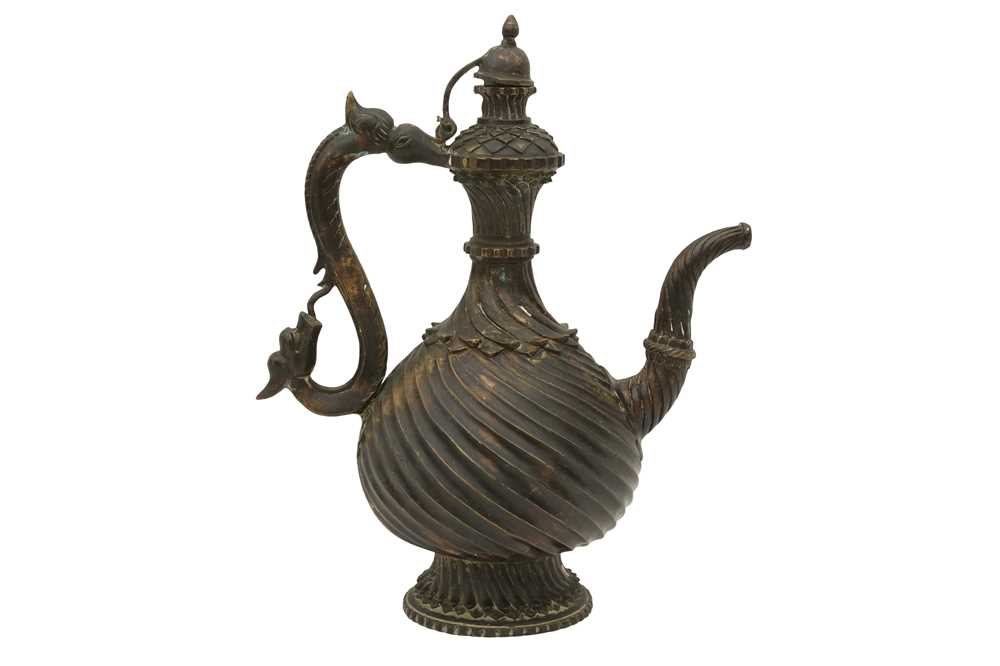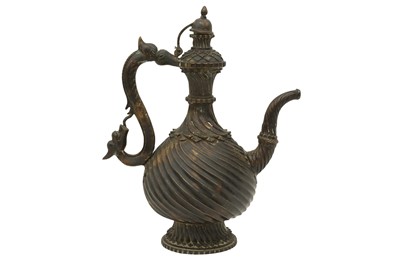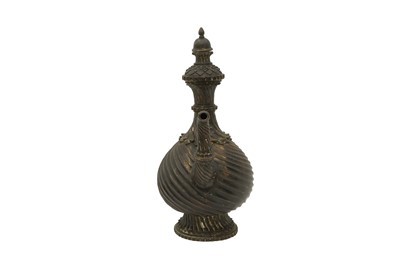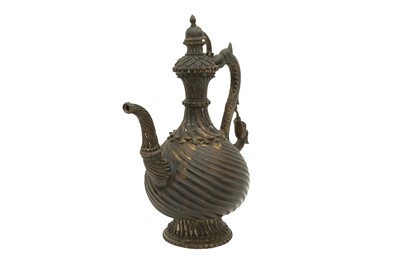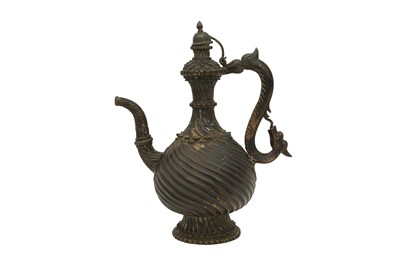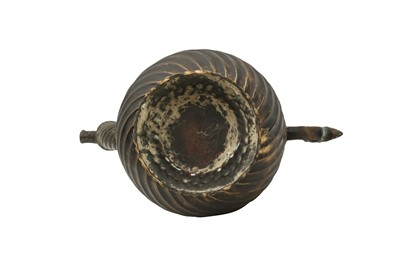28th Oct, 2022 14:00
Islamic & Indian Art
A BRONZE EWER (AFTABA) WITH MAKARA HANDLE
Possibly Mughal India, 16th - 17th century
A BRONZE EWER (AFTABA) WITH MAKARA HANDLE
PROPERTY FROM A PRIVATE AMERICAN COLLECTION
Possibly Mughal India, 16th - 17th century
Of pyriform shape, resting on a splayed circular foot, rising to narrow shoulders and a flared, cylindrical neck decorated with flower-collared rings, surmounted by a kumbha (cushion-like architectural element ubiquitous in Hindu temple pillars) with rows of lotus flower petals and a hinged dome-like lid, a curved spout and sinuous handle on each side, the body and spout enhanced with twisted fluting, a favourite Indian decorative device, the terminals on the handle designed as stylised makara heads, 36cm high.
Provenance: Private German Collection.
In his publication Gold, Silver and Bronze from Mughal India (1997), Mark Zebrowski published a Mughal bronze aftaba (cat. 180, p. 145) identical to ours, which used to be in the Goupil Collection in Paris and was later bequeathed to the Musée du Louvre (inv. no. 5937). The scholar admitted his original predisposition to catalogue the ewer as a 19th-century Mughal-revival assemblage, but the twisted fluting on the body and spout, together with other features like the kumbha on the neck and the notched disks on the foot, led him to reconsider and to attribute the Louvre aftaba as a 16th-century production. For further comparison, please visit the Collection Database website of the Musée du Louvre.
Sold for £8,750
Includes Buyer's Premium
Do you have an item similar to the item above? If so please click the link below to submit a free online valuation request through our website.
